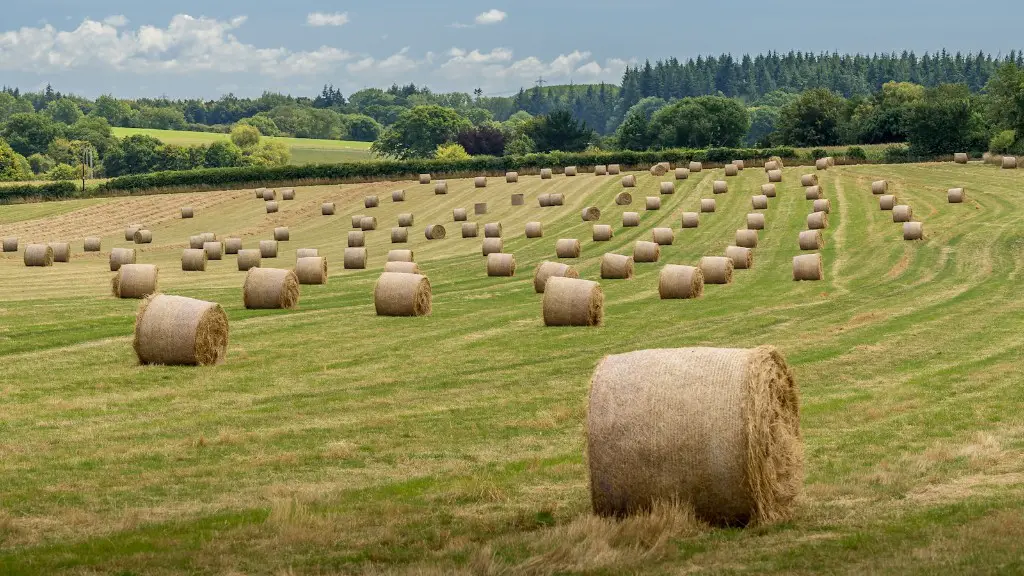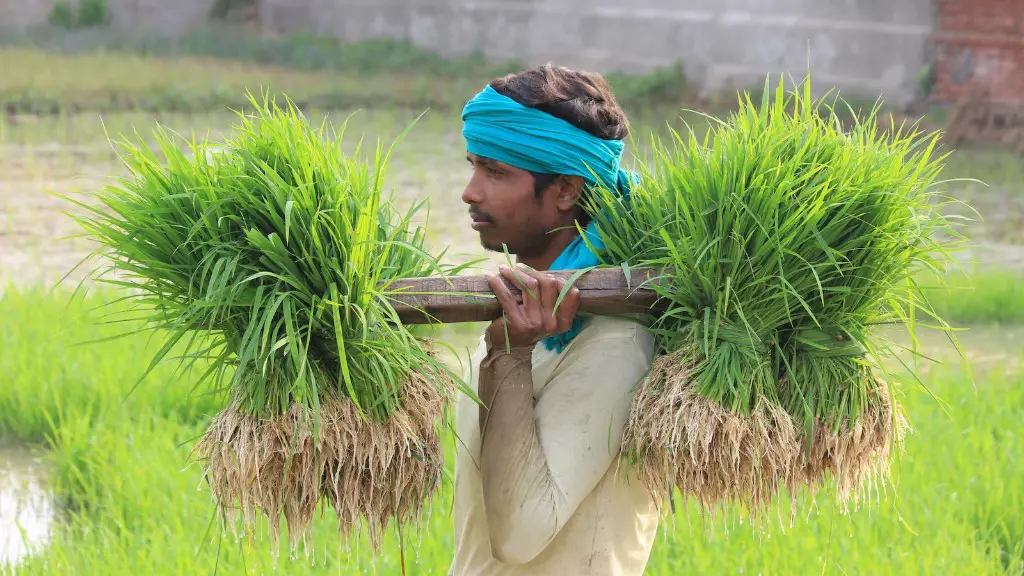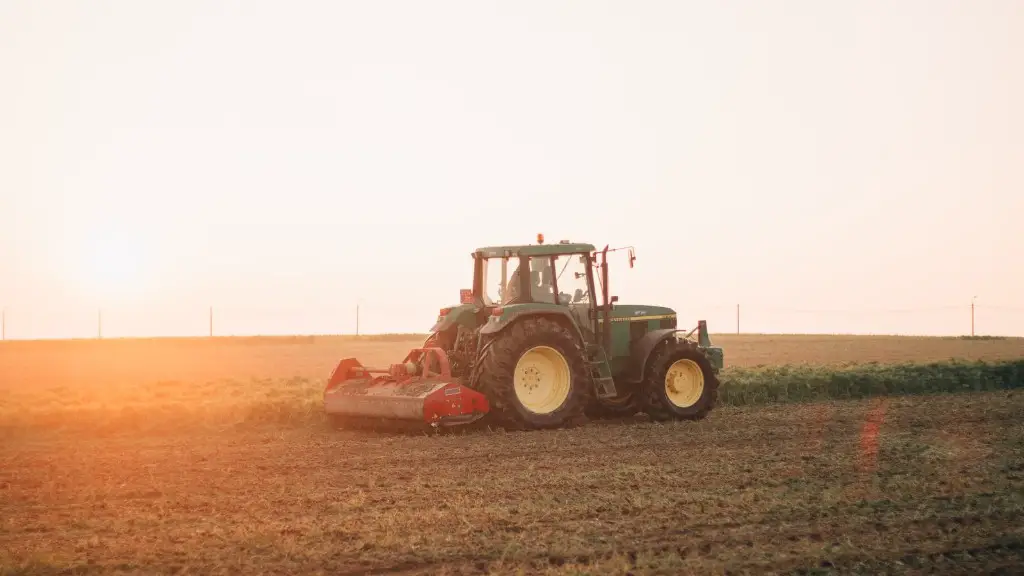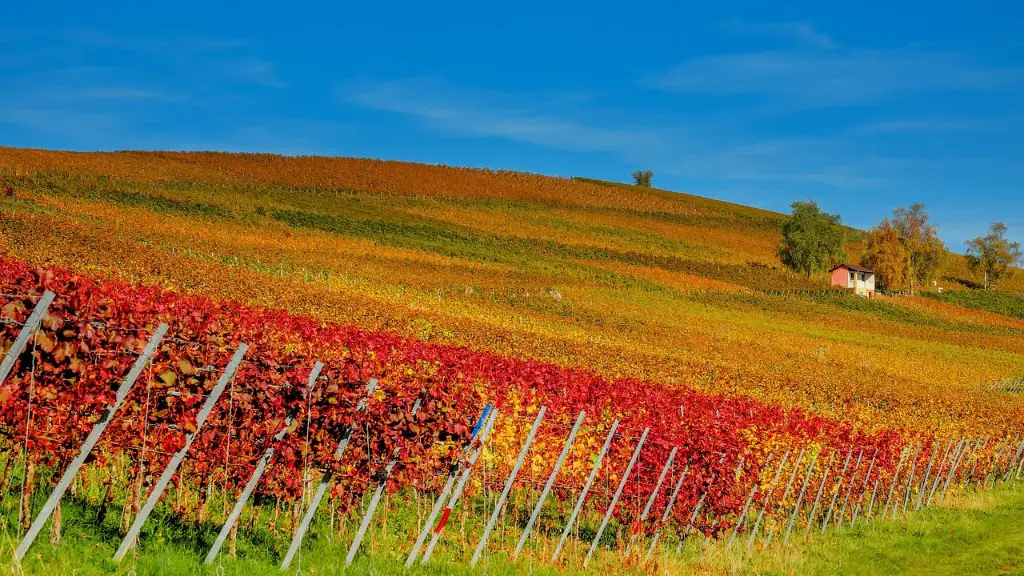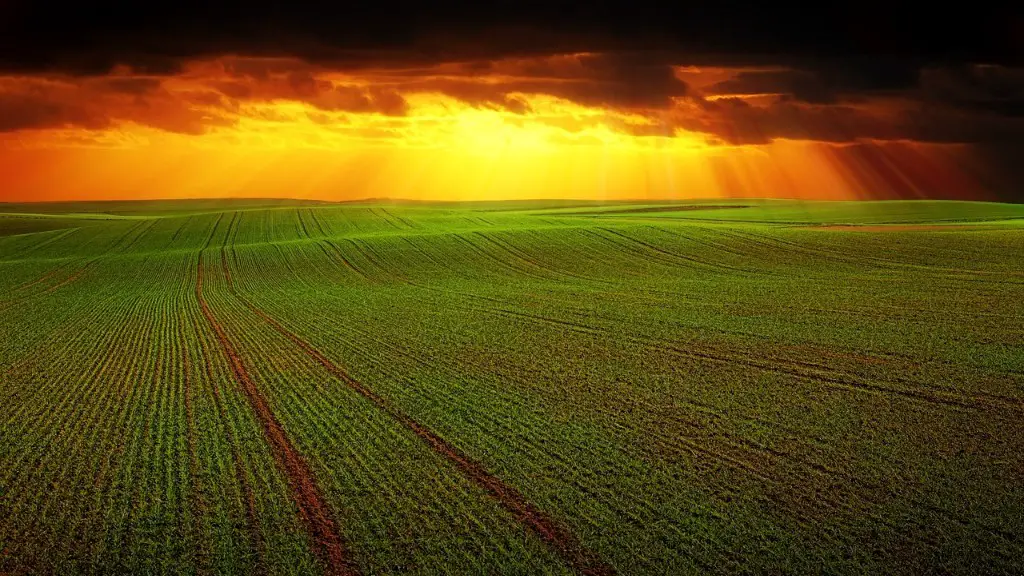The Department of Agriculture in the Philippines is a government agency that is responsible for the development and promotion of the agricultural sector in the country. It is also responsible for providing support to farmers and other stakeholders in the agricultural industry. The department works to ensure that the agricultural sector is able to meet the food and other needs of the country.
The Department of Agriculture in the Philippines is tasked with developing and implementing policies and programs aimed at improving the country’s agricultural sector. The department’s goals include increasing agricultural productivity, ensuring food security, and reducing rural poverty.
What is the role of Department of Agriculture in the Philippines?
The Department of Agriculture (DA) is responsible for the promotion of the country’s agricultural development. The DA provides policy framework, public investment, and support services needed for domestic and export-oriented businesses. The DA also formulates and implements programs and projects that will further develop the agricultural sector.
The United States Department of Agriculture provides leadership on food, agriculture, natural resources, rural development, nutrition, and related issues based on public policy, the best available science, and effective management. We work to ensure that all Americans have access to safe, nutritious, and affordable food, and that our agricultural and forestry industries remain strong and vibrant. We also work to conserve our natural resources and to protect our environment. In all of our work, we strive to be fair, transparent, and responsive to the needs of the American people.
What are the Department of Agriculture programs in the Philippines
The Department of Agriculture (DA) is spearheading the effort to increase national production of agricultural commodities through its six banner programs. These programs are focused on rice, corn, high value crops, livestock, fisheries, and organic agriculture. The DA is providing support to farmers and fishermen through various initiatives, such as subsidies, training, and extension services. With increased production, the DA hopes to improve the livelihoods of those who depend on agriculture and fisheries for their livelihood.
The government should help and empower the farming and fishing communities and the private sector to produce enough, accessible and affordable food for every Filipino and a decent income for all.
The government can help by providing subsidies and support for farmers and fishermen, and by creating an environment that is conducive to investments in the agricultural sector. The private sector can play a big role in increasing food production and making food more accessible and affordable for Filipino consumers.
With the right policies and support from the government and the private sector, Filipino farmers and fishermen can increase food production and make a decent income. This will help ensure that every Filipino has access to affordable and nutritious food.
What is the function of Dar?
The Department of Agrarian Reform (DAR) is responsible for the implementation of the Comprehensive Agrarian Reform Program (CARP). The program aims to improve land tenure, provide agrarian justice, and deliver essential support services to client-beneficiaries. The DAR works to ensure that landless farmers and farmworkers are given the opportunity to own and cultivate land, which will improve their economic security and quality of life. The department also provides support services such as credit, extension, and training to help beneficiaries make the most of their land.
1) High input costs: Many Filipino farmers are simply unable to take their production further due to the high expense of many critical inputs. This includes seeds, fertilizer, pesticides, and other necessary materials.
2) Lack of post-harvest facilities: Without proper facilities for drying, storing, and milling rice, farmers are often forced to sell their crop at a lower price.
3) Climate change: The Philippines is a tropical country and thus vulnerable to extreme weather conditions. droughts and typhoons can destroy entire rice crops, leaving farmers without any income.
4) Market forces: The rice market is highly competitive, and farmers often struggle to get a good price for their crop. The presence of large rice companies and traders can make it difficult for small farmers to sell their rice at a fair price.
5) Land rent: Many farmers in the Philippines lease their land from large landowners. The rent is often very high, and can eat into farmers’ profits.
6) Demographics: The Philippines has a large population, and the demand for rice is always high. However, the number of people working in the agricultural sector is decreasing, as many young people choose to leave the countryside to find work in the cities
What programs does the Dept of agriculture have?
The national banner programs of the Department of Agriculture (DA) are the priority programs that aim to address food security, poverty alleviation, and sustainable growth through increased farm income and productivity. These programs include the Rice, Corn, High Value Crops, Livestock, and Organic Agriculture banners. Through these programs, the DA provides support in the form of technical assistance, financial assistance, and extension services to farmers across the country. These programs have helped increase farm incomes and productivity, as well as improve the lives of farmers and their families.
The DALRRD is tasked with developing agricultural value chains, providing agricultural inputs, and monitoring production and consumption in the agriculture sector, as well as facilitating comprehensive rural development. In doing so, the department seeks to improve the competitiveness of the agriculture sector, support rural livelihoods, and contribute to food security in South Africa.
Who is the head of the Department of Agriculture in the Philippines
Ferdinand “Bongbong” Romualdez Marcos Jr is the current Secretary of the Department of Agriculture of the Philippines. He assumed office on June 30, 2022 in concurrent capacity as President.
Marcos is the eldest son of former Philippine President and dictator Ferdinand Marcos and former First Lady Imelda Marcos. He is also the half-brother of former senator Ferdinand “Bongbong” Marcos Jr.
The Department of Agriculture is responsible for the promotion of agricultural development and growth in the Philippines. Its vision is to make the Philippines “a globally competitive agricultural and fisheries sector that is ecologically sustainable, economically viable, and socially responsible.”
The Philippines is a country located in Southeast Asia. The Philippines’ major agricultural products include rice, coconuts, corn, sugarcane, bananas, pineapples, and mangoes. Rice is the Philippines’ most important crop, and is grown in both wet and dry climates. Coconuts are also an important agricultural product, and are used in many different products, such as oil, milk, and water. Corn is another major crop, and is used for both food and animal feed. Sugarcane is also an important crop, and is used to make sugar, molasses, and ethanol.
How can I get assistance from Department of Agriculture?
The Department of Agriculture can help small-scale gardeners and subsistence farmers in rural or urban areas get started with their gardens. Contact the Department of Agriculture at 012 319 7331 for more information.
San Miguel Corporation is a diversified conglomerate with businesses in food and beverages, packaging, power and energy, financial services, and real estate. The company was founded in 1800 by Don Antonio Munoz and is headquartered in Mandaluyong, Philippines.San Miguel Corporation’s food and beverage businesses include San Miguel Brewery, Ginebra San Miguel, and Manila Beer. The company’s power and energy businesses include Manila Electric Company, First Gas Power Corporation, and Morena Energy Corporation. San Miguel Corporation’s real estate business is represented by SM Prime Holdings, Inc., the country’s largest shopping mall developer and operator.
Why is the Philippines great for agricultural country
Farming and fisheries have been the largest agricultural sub-sectors in the Philippines for many years due to the country’s terrain and tropical climate conditions. Crop production, particularly of sugarcane, palay or rice, coconut, and bananas, has been among the highest nationwide and these products have also been among the top export items for the Philippines.
The Philippines Partnership for Sustainable Agriculture is a national network that builds and nurtures regional networks aimed at increasing farm productivity and farmer profitability while achieving inclusive agricultural growth. Launched in 2015, the PPSA is a public-private partnership between the Department of Agriculture of the Philippines and the United States Agency for International Development.
Why does the Philippines need agricultural development?
More than half of the Philippines’ 100 million people live in rural areas, and more than a third of them are poor Agriculture is the primary source of income for poor rural people, and the only source for many of the poorest households. While the Philippines has made great strides in reducing poverty overall, the rural poor have been left behind.
There are many reasons for this, but one of the most important is that the government has invested far more in urban areas than in rural areas. This has led to a situation where the rural poor are increasingly marginalized and left behind.
The government needs to do more to invest in rural areas and to help the rural poor. Otherwise, the country will continue to see rising inequality and social tensions.
The agrarian reform program is an important initiative that seeks to correct the injustices faced by farmers and regular farmworkers who do not own the land they work on. The program aims to provide these individuals with the opportunity to own or collectively own the land they work on, so that they can benefit from its fruits. This initiative is important in ensuring that all members of society have access to the resources they need to live and work successfully.
How do you become a DAR beneficiary
The Presidential Decree No 27 provides that beneficiaries who have sold, disposed of, or abandoned their land are disqualified to become beneficiaries under the program. This is because a basic qualification of a beneficiary is his willingness, aptitude and ability to cultivate and make land as productive as possible. Thus, those who have sold, disposed of, or abandoned their land are not considered as qualified beneficiaries.
The 1987 constitution allows citizens to lease up to 500 hectares or purchase, homestead, or grant up to 12 hectares. This is a change from the previous Constitution which only allowed citizens to lease up to 300 hectares. The new wording also changes “or they may acquire” to “and they may acquire”, making it clear that citizens can do more than one of these things.
Warp Up
The Department of Agriculture in the Philippines is the government agency responsible for promoting agricultural development in the country. It provides support to farmers and agribusinesses, and implements programs and policies to ensure food security.
The Department of Agriculture in the Philippines is responsible for the country’s agricultural development and growth. The department’s main focus is on improving the productivity of the country’s agricultural sector, as well as on ensuring food security. In addition, the department also works to promote the country’s agricultural exports and to protect the country’s agricultural resources.

